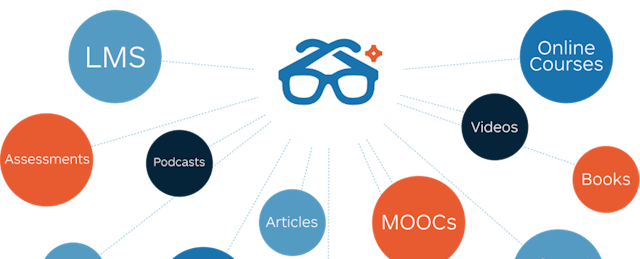Degreed’s original mission is to “jailbreak the degree,” but even its CEO didn’t anticipate how fast his uncaged bird would fly.
Degreed has raised a $21 million Series B round soon after its $7 million April 2015 Series A round, bringing the company’s total funding to almost $30 million. Jump Capital led the round; Signal Peak, Rethink Education, Deborah Quazzo and existing investors also participated.
That’s an almost dizzying change for the company that was founded in 2012 with the goal of creating the “the world's first Digital Lifelong Diploma.” Cofounder and CEO David Blake wanted to create a platform that could score and validate any chunk of education someone soaked up--from classes at Harvard or Coursera to conferences and certificates. Much like “jailbreaking” iPhones meant users could modify them with previously prohibited software, Blake wanted to make “all learning matter.”
It was slow going, however. In late 2014, Blake rolled out a version of the Degreed platform to support corporate employees learning skills. Suddenly, the Degreed platform, which collated and showcased the educational materials that people mastered, was seen as a handy ways to measure employees’ competencies in a wide range of activities.
“Professional training used to be the sole property of the company,” Blake said. “You could only get training through the company,” Blake says. “Lynda.com and others have changed it on the content side, and we’re doing it on the technology side.”
In 2015, Degreed grew far more rapidly than even Blake had dared to hope. The list of businesses buying licenses for Degreed ballooned from three companies to almost a hundred. To keep pace with demand, the company swelled from 20 to 100 employees in its San Francisco and Salt Lake City offices. All of Degreed’s revenue comes from its enterprise clients, so it’s safe to say the company’s incoming cash exploded in 2015 as well.
Even beyond the number of clients, the size of the interested businesses also took Blake and the Degreed team by surprise. He claims that Degreed is working with Fortune 10, Fortune 20 and Fortune 50 companies, each with thousands of employees, though Degreed is under contractual obligation not to reveal its clients’ names. The escalation, he thinks, is due in part the individuation of professional development: People are starting to choose for themselves the resources that improve their knowledge and job performance. Companies, taking note, are attempting to empower them to do so.
Degreed plans to use the fresh funding to maintain its breakneck growth. Many of the company’s larger clients have international divisions, so building the capabilities to work overseas is a top priority for Blake. To that end, Degreed will also expand its sales, client success and account management teams. The company’s sales and account management process is complex and long-term; often multiple divisions of each company ask that the platform recognize and work with in-house systems, which requires specialized attention over an extended period of time.
Blake says he aims to make "any way you can learn or demonstrate learning" a process that works seamlessly on the Degreed system. For instance, someone who learns, say, to navigate processes through virtual reality or passes a game-based tutorial around customer service could record their learning on Degreed, he suggests. Degreed says it’s already working with 1,200 learning resource providers and has its eye on many more.
Even if all of Degreed’s revenue now comes from corporations, Blake still has the individual learner in mind. He envisions individuals using Degreed to track their learning for their entire adult lives no matter where they work. (Degreed doesn’t charge individual users.) That way, even if people move from one company to another, they won’t lose their educational pedigree along the way.
Though Degreed looks the same to an individual as well as to a company, enterprise accounts receive additional features such as analytics on employees' competencies. Blake said an enterprise license also entitles the company to integration with its current learning systems. The most common request, according to Blake, is for Degreed to work with a company’s learning management system.
Blake said that companies often use Degreed to demystify and delineate the path to promotion or a move to another division: Employees may need to learn X, Y and Z skills, and they can demonstrate that through their Degreed profiles, often with materials their supervisors would not expect.
Much like Degreed users weave together their learning porfolios from both formal and informal education experiences, the company aims to help identify “experts,” as it calls them on its website—people with useful knowledge they may have gained outside traditional educational institutions—by making all types of learning visible and quantifiable. The company’s manifesto encourages these experts with a motto repeated in many of its marketing materials: “The future doesn’t care how you became an expert.”
The company does not, however, offer officially recognized certifications to its experts. For example, Degreed does not issue certificates that would equal a degree from an accredited university in terms of legal and widely accepted significance. Degreed’s model of educational freedom has two sides: As companies and users make their own educational path, so, too, must they set their own benchmarks.


